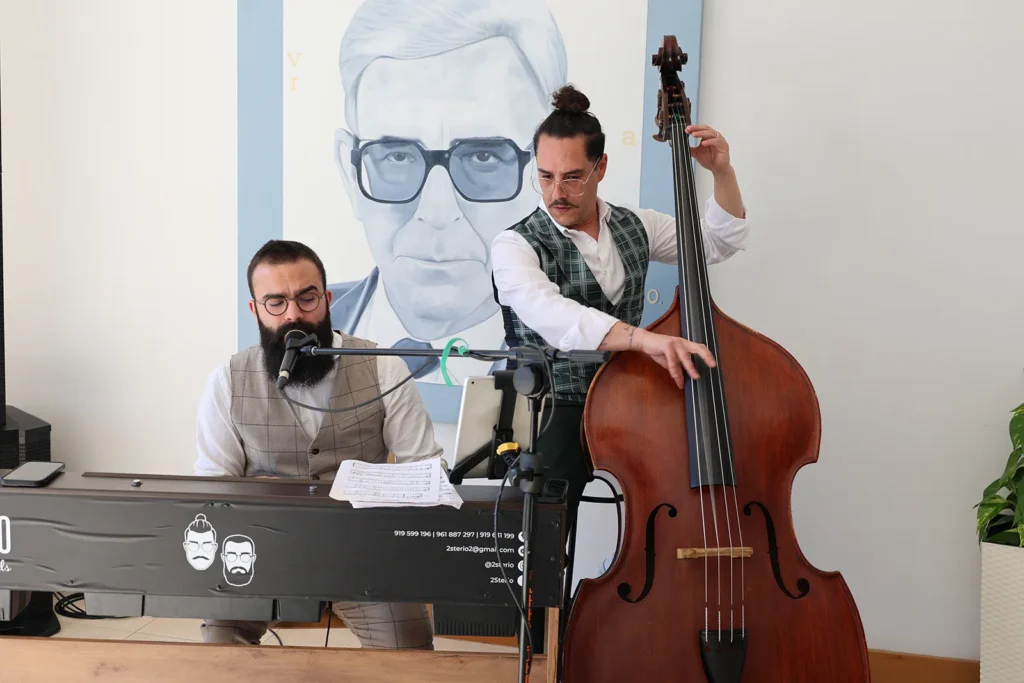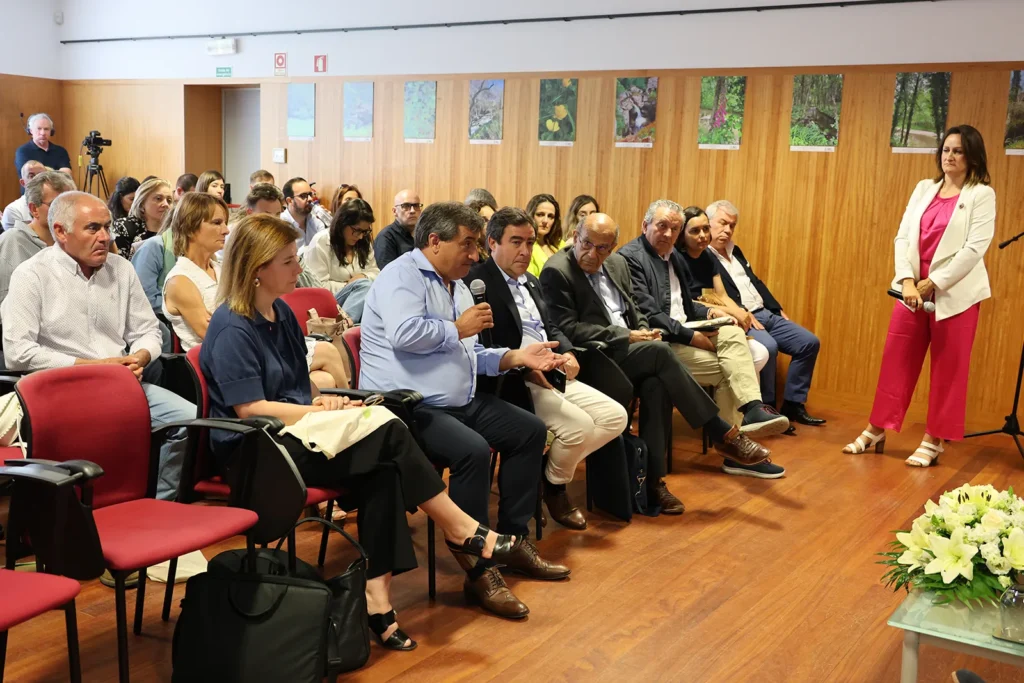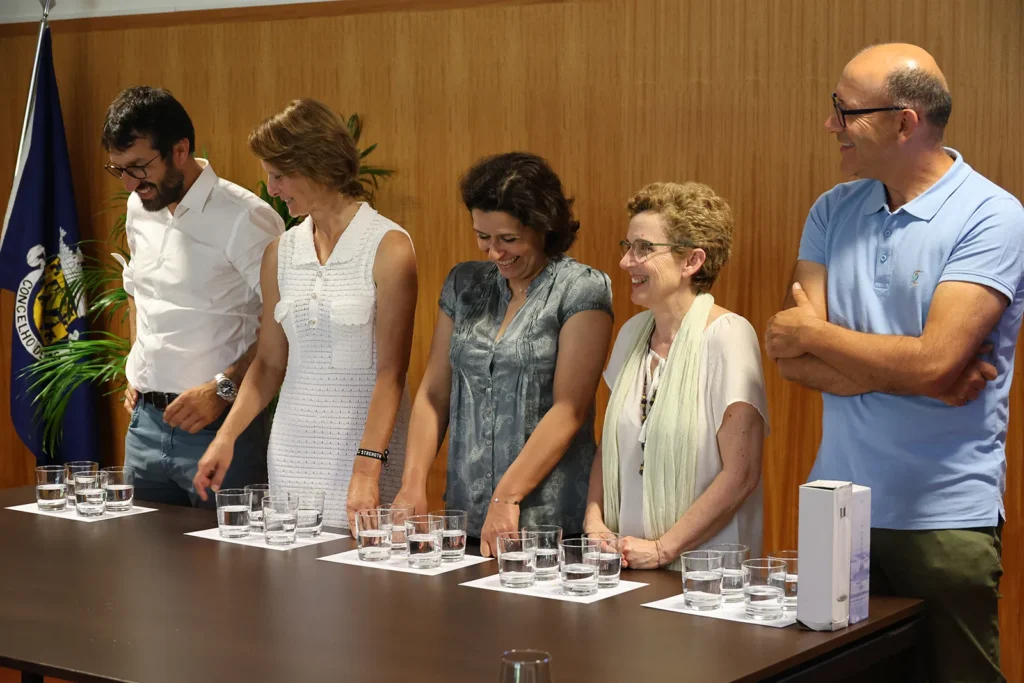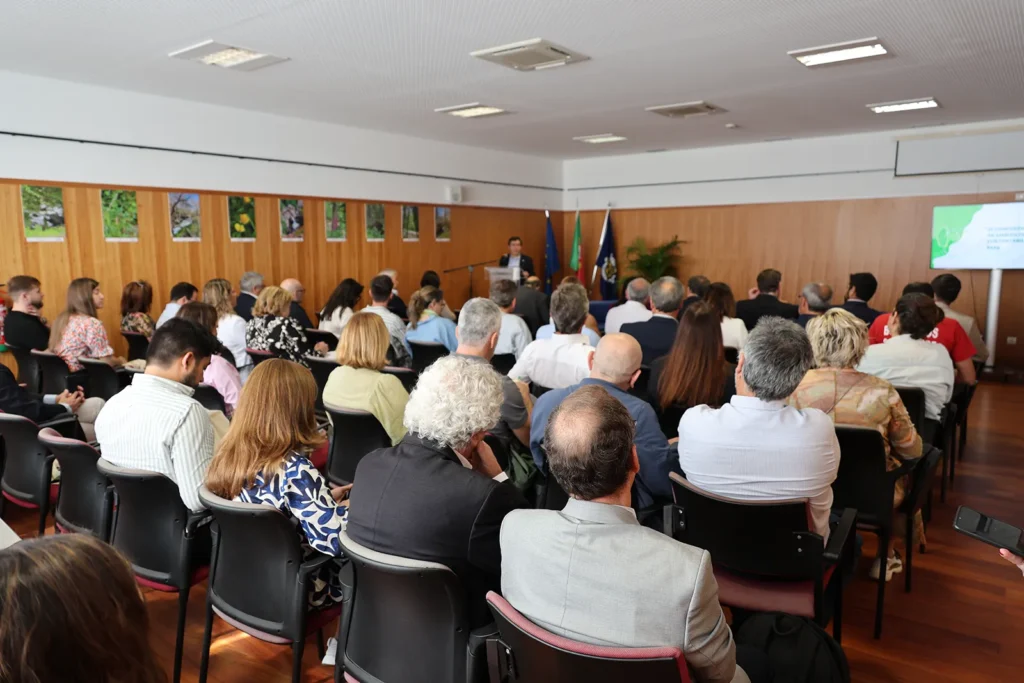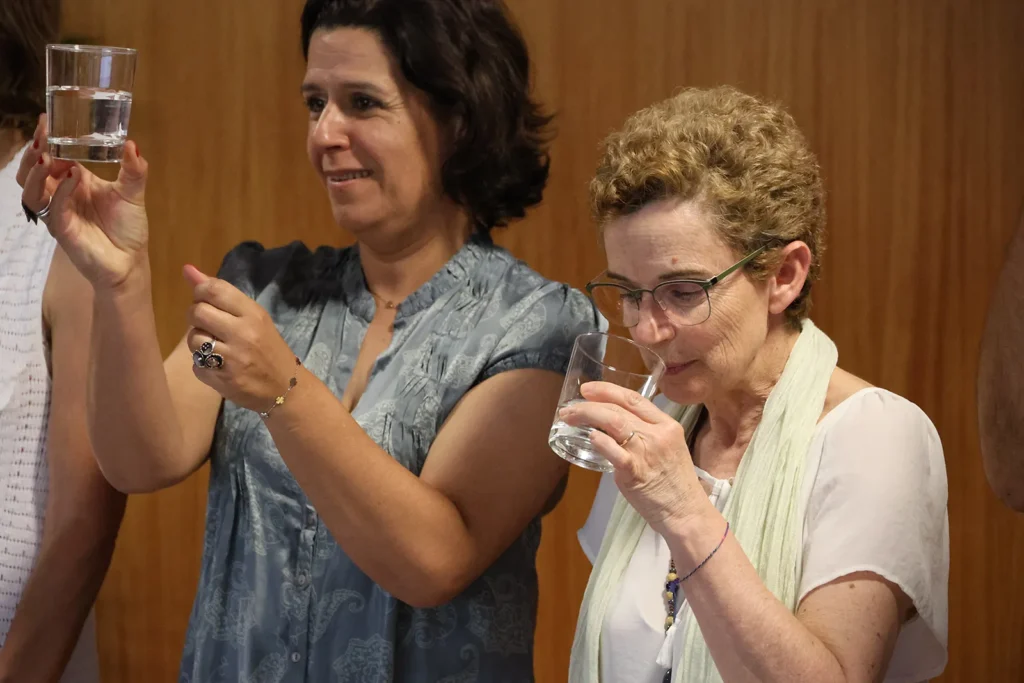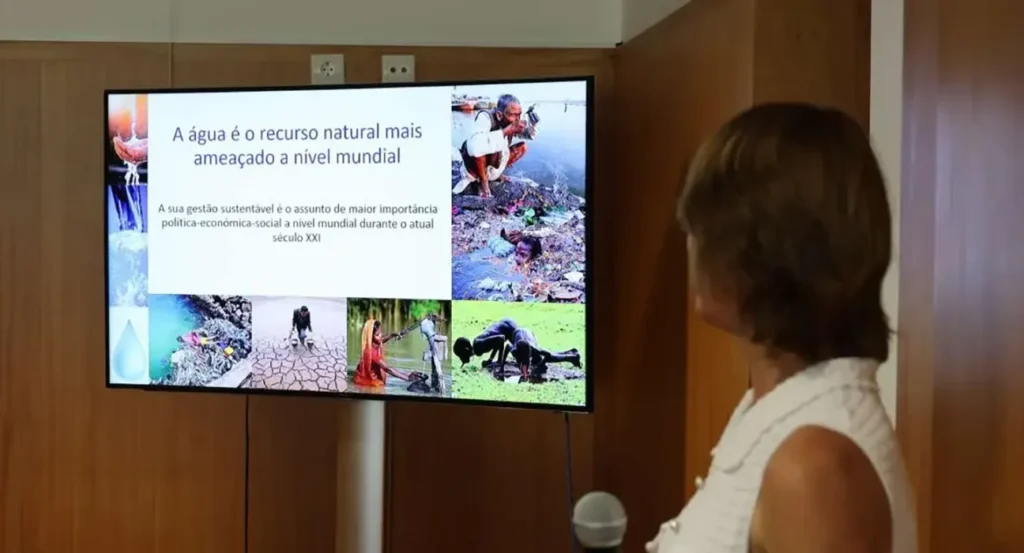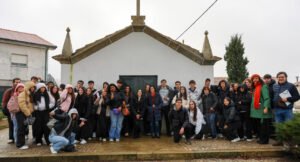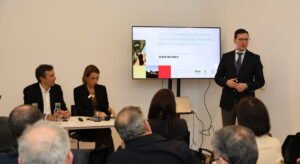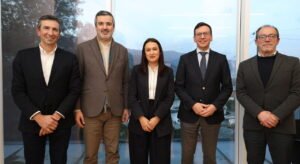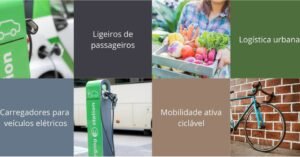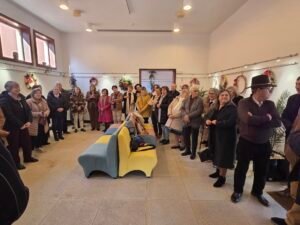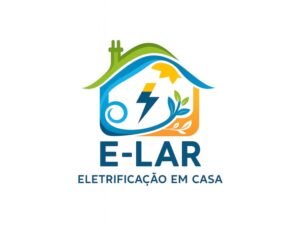The vital importance of water was at the centre of the debate on “Sustainable Management of Water Resources”, as part of the 3rd Annual Environment and Sustainability Conference, organised by Baião Municipal Council, through the Environment department, which took place on 29 May at the Municipal Services of Santa Marinha do Zêzere, with interventions from national and international experts linked to the sector. It was a topic that, being on the agenda, aroused enormous interest, filling the space with interested and participative people.
In his opening speech, the mayor of Baião, Paulo Pereira, began by referring to the major challenges and threats to our “common home” which call on each and every one of us to “assume our role and responsibility” in its defence.
On the basis of this warning, the mayor detailed some of the evidence of the “climate crisis” plaguing the planet, which has negative, notorious and evident repercussions on “an unprecedented scale”.
EFFICIENT AND SUSTAINABLE WATER MANAGEMENT
Alluding to the European Union’s directives on the targets to be achieved within the framework of climate neutrality – zero net emissions by 2050 and, in an intermediate framework, a 55 per cent reduction in emissions by 2030 – Paulo Pereira gave an account of the priorities defined by Baião, namely the “efficient and sustainable management of water, with a special focus on the urban water cycle”.
In this context, the mayor pointed to a number of investments that have already been made, such as the “reinforcement of water collection and supply and sanitation; the launch of the wastewater reuse project; the strategy for the requalification of the municipality’s main water lines, namely the Ovil and Teixeira rivers, which will lead to the creation of ecological corridors”, among other measures within the framework of the sustainability strategy.
After mentioning the municipality’s alignment with the 17 United Nations Sustainable Development Goals, emphasising “since 2006, the Baião, Vida Natural (Baião, Natural Life) signature”, the mayor assured that the “path inevitably leads to the sustainable management of our water resources”.
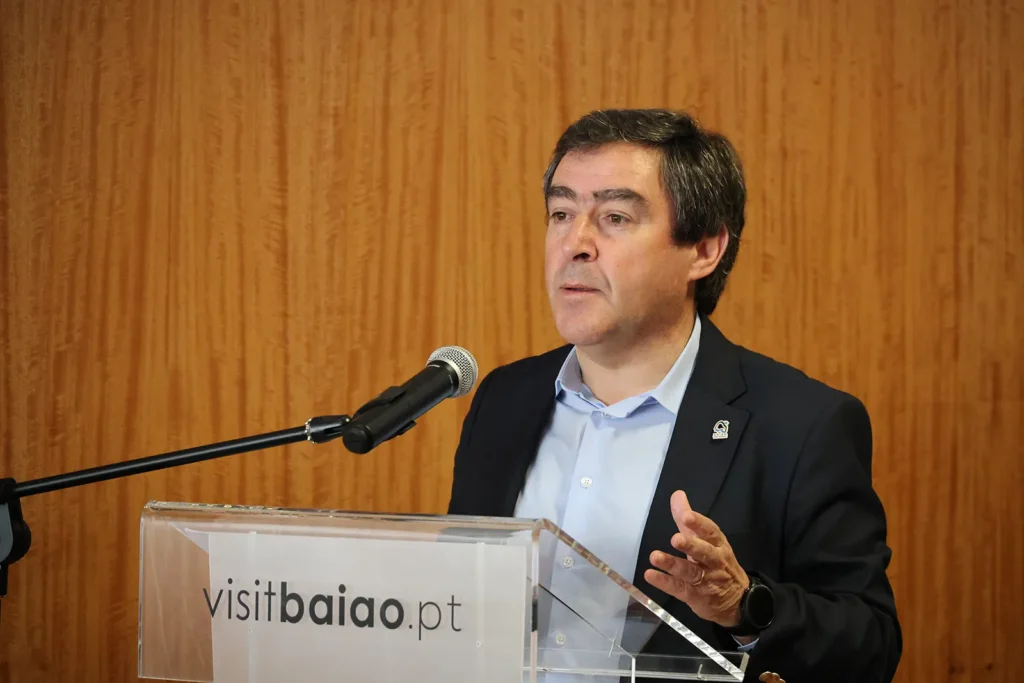

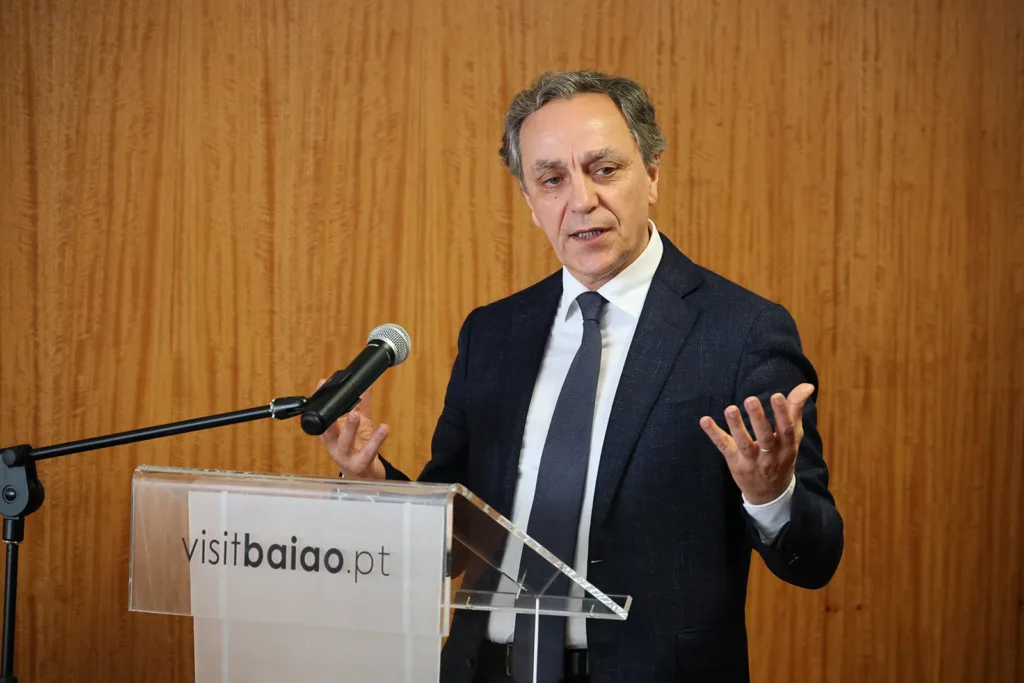
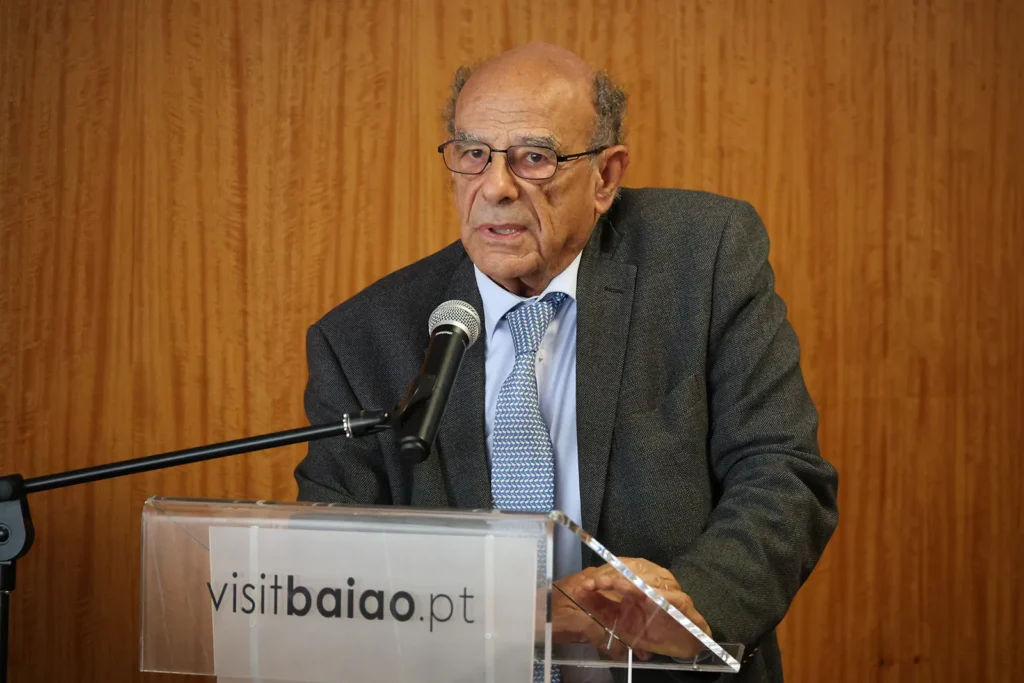
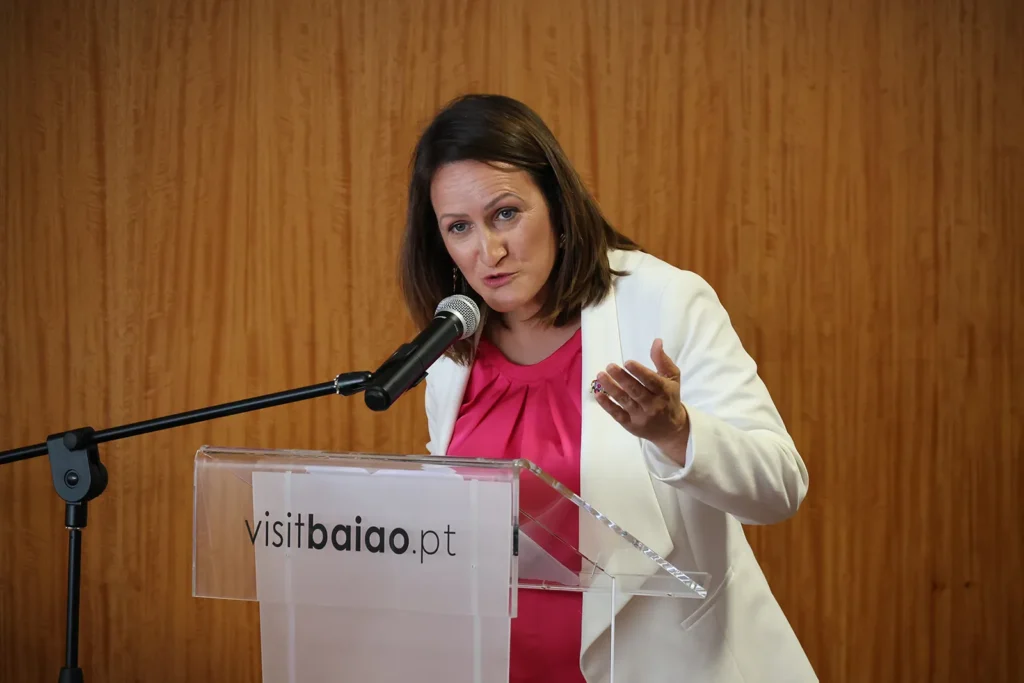
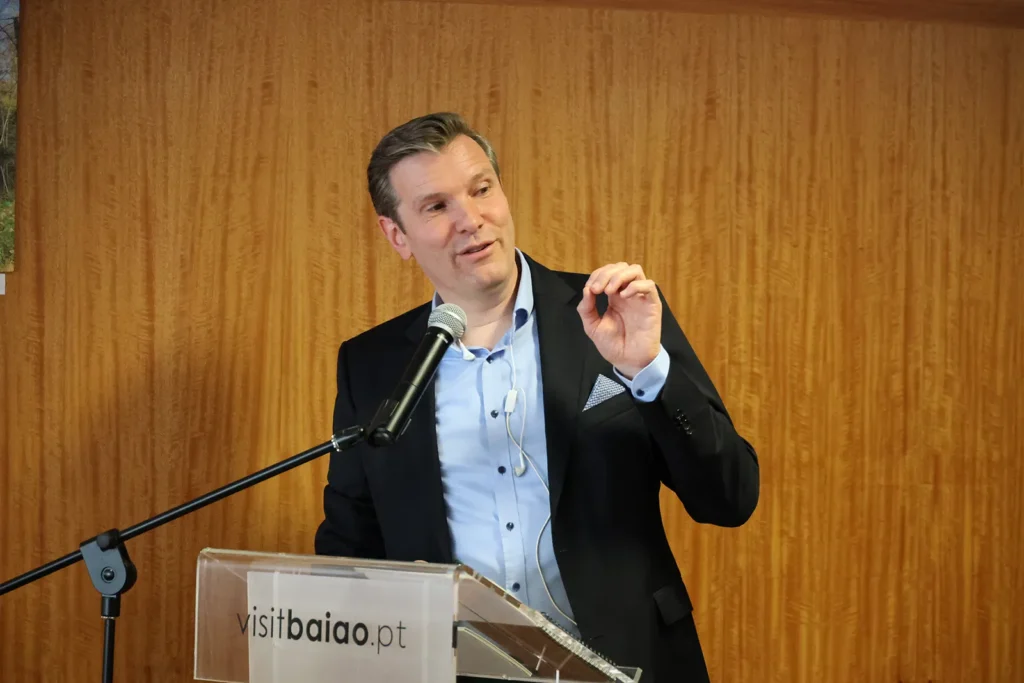
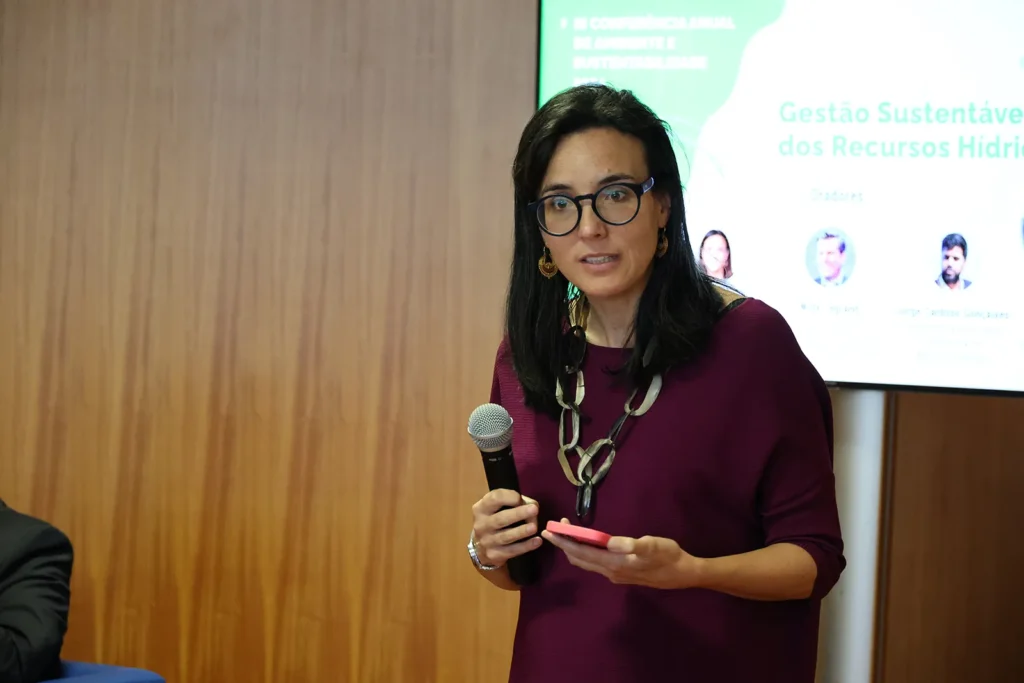
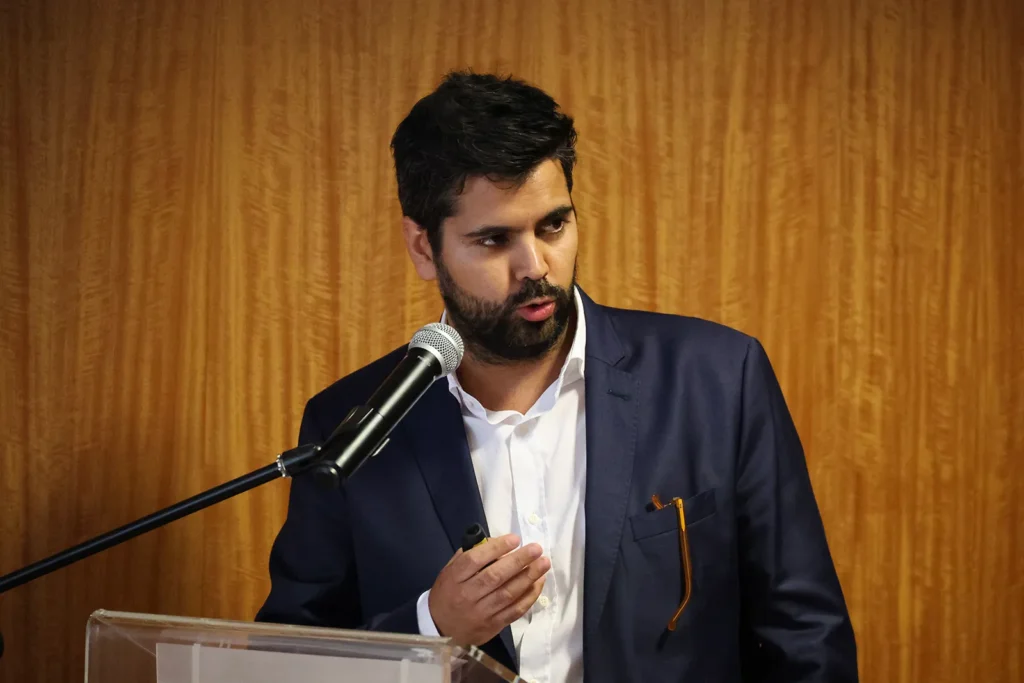
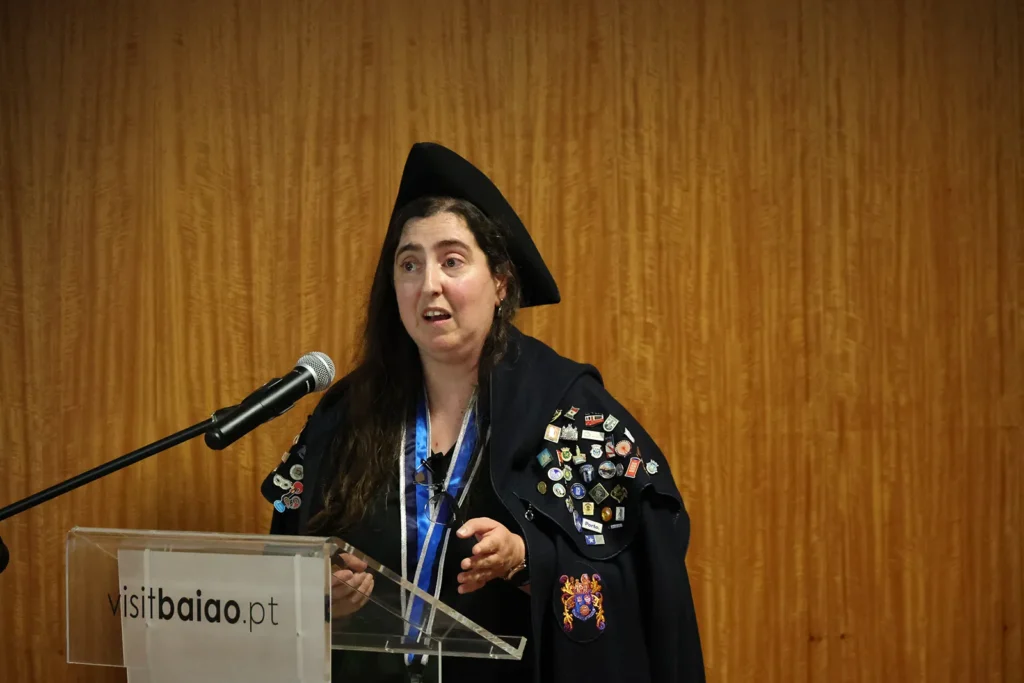

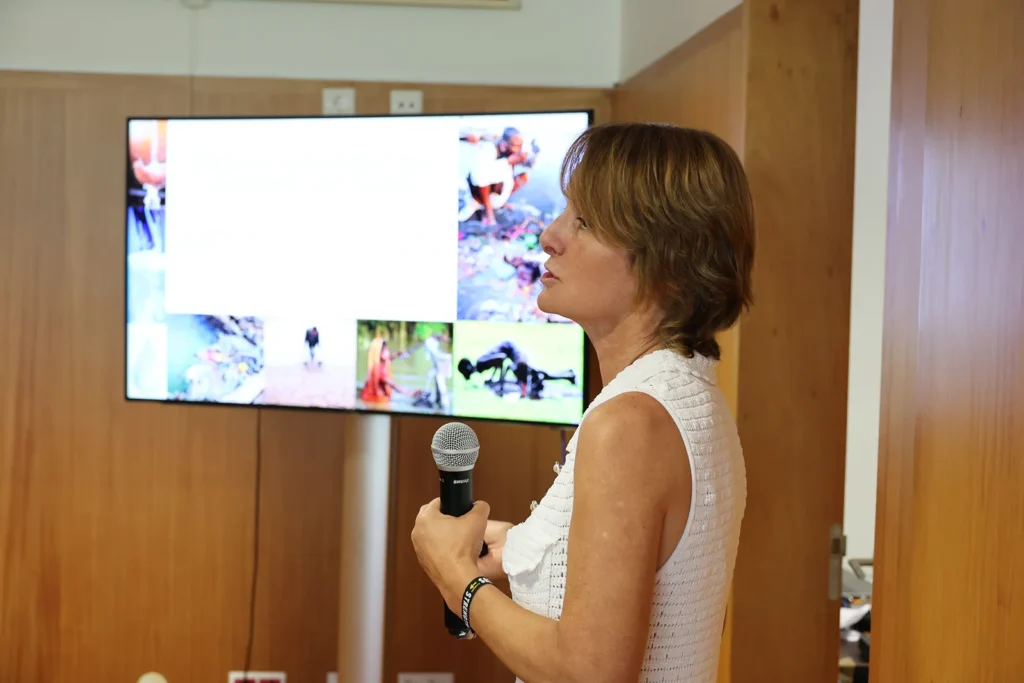

MUNICIPAL WATER PLAN
And on this path, “we want to go further!” he assured, revealing the progress made in drawing up a Municipal Water Plan, based on a logic of “protecting the resource and sustaining the socio-economic development of the territory”.
Reaffirming the challenge we face and everyone’s responsibility, Paulo Pereira concluded his speech by quoting Saramago: “Let’s not be in a hurry, but let’s not waste time!” he said.
This was followed by a series of speeches, namely by Pimenta Machado, vice-president of the Portuguese Environment Agency (APA), who referred to the diverse situation in the country with regard to the “distribution” of water, alluded to some projects that mitigate situations of scarcity and highlighted the “good example of Baião” in the way it manages its resources.
The president of the National Council for the Environment and Sustainable Development, Filipe Duarte Santos, addressed the topic: “The Challenges of Sustainability. Centring the debate on knowledge of ourselves”, presenting a historical overview of climate change and pointing out some of the harmful effects.
In his speech, Willy Legrand, a professor at the International University of Applied Sciences, Germany, analysed data on water waste in certain sectors of activity and also presented examples of how to mitigate excessive consumption.
THE NEED TO ACT QUICKLY AND NIMBLY
Vera Eiró, president of the Water and Waste Regulatory Authority (ERSAR), emphasised the value of water, which “is infinite” and “far exceeds its cost”. Given its scarcity, she defended the need to act “quickly and nimbly”, namely through medium and long-term management. To this end, the president of ERSAR listed a series of measures that should be adopted.
For his part, Jorge Cardoso Gonçalves, president of the Portuguese Water Resources Association, addressed issues related to the future of water and water resources, listing threats and opportunities, which are centred on a management plan that will involve, among other things, the economic and financial balance of the sector and opening doors to innovation.
Simone Varandas, a professor at the University of Trás-os-Montes and Alto Douro, from the Research Centre for Agro-Environmental and Biological Technologies (CITAB), spoke on the topic of “Water Resource Management – One Health” and focused on water quality and how this quality is affected and can have a strong influence on human health. The researcher presented a set of data on the amount of fresh water on the planet, 2.5 per cent, a considerable part of which is not drinkable, requiring a huge investment to make it fit for human consumption.
There was also an opportunity for debate, with various questions on the subject being addressed.
There was also a water tasting by the Confraria da Água – Association of Water Tasters of Portugal.
The “Green Team”, the municipal team responsible for organising the event, reported on the carbon footprint resulting from the Conference, stressing that compensatory measures would be taken.
At the end of the Conference, the councillor responsible for the Environment, Henrique Ribeiro, praised the “quality, interest and relevance” of the Conference, thanking and praising the “contribution of all those involved” and emphasising the urgency of “taking mitigating measures aimed at the sustainability of water resources. Sustainability is a continuous journey,” he concluded.
The Auditorium where the Conference was held featured a set of photographs of the Ovil, taken by 10th grade students from the Vale de Ovil School Group, as part of visits to the stretch of river, organised by the Environment and Education departments, through the Municipality’s Environment and Sustainability Unit and Education Unit.
In addition to the speakers, the III Annual Environment and Sustainability Conference was attended by the mayor of Cinfães, Armando Mourisco, councillors from Baião council, other mayors, representatives of local organisations, technicians and council employees.
